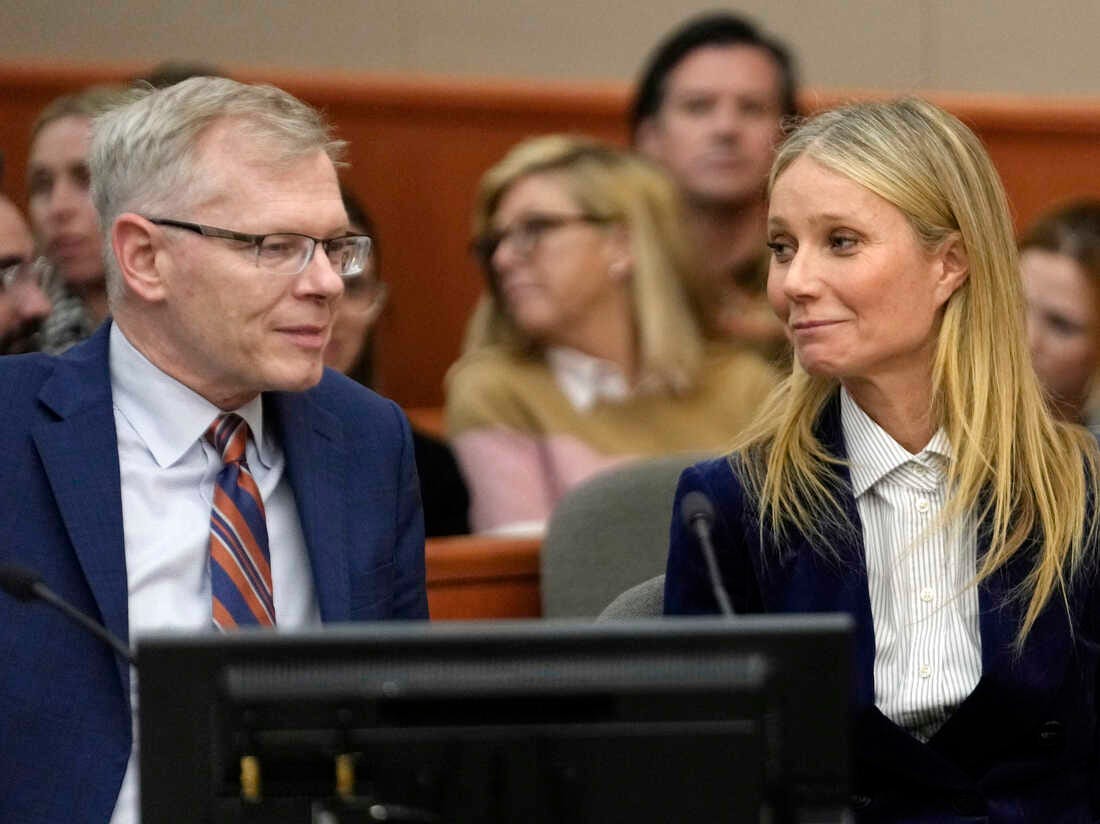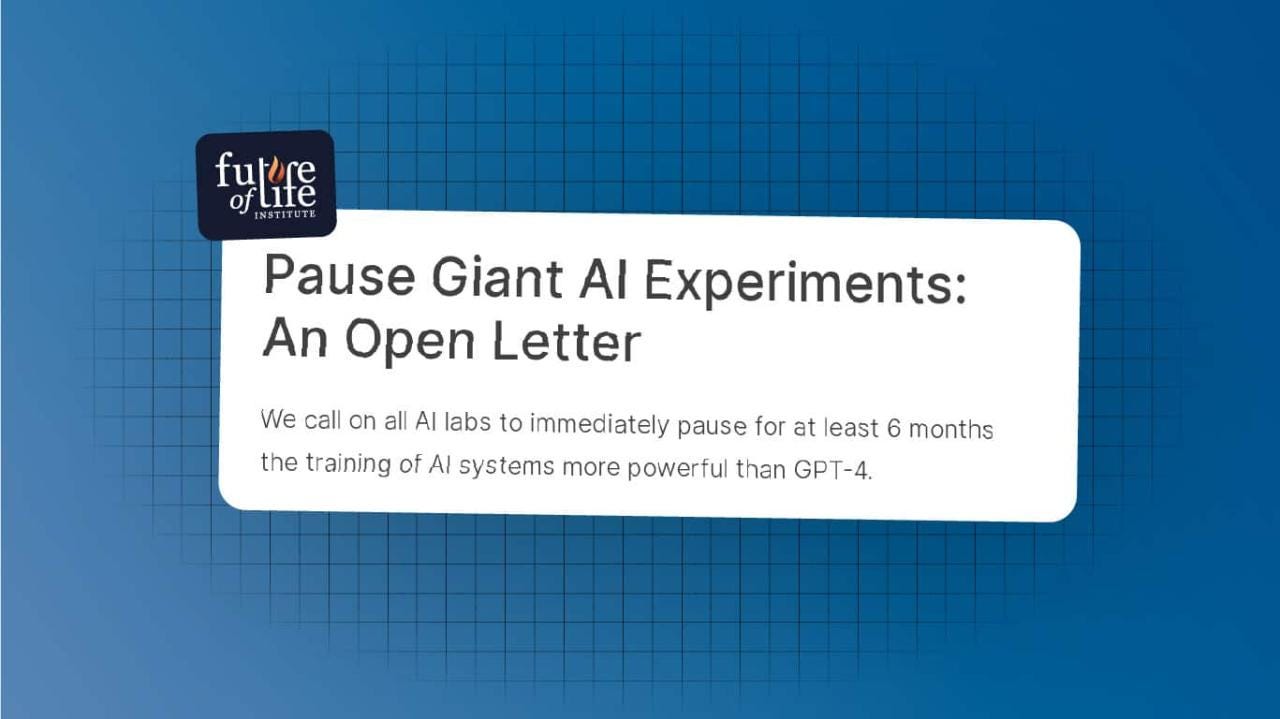Media Trends: Gwyneth Paltrow, Led By Donkeys & AI
Gwyneth Paltrow's ski-crash case | Led By Donkeys viral campaign | AI open letter
Gwyneth Paltrow's courtroom win comes with a PR price tag
“May I ask how tall you are?”
“I am just under 5 10.”
“I am so jealous, I have to wear four inch heals just to make it to 5 5.”
“You were wearing goggles, a helmet – kind of looked like everyone else on the slope?”
“That’s always my intention.”
“You probably had a better ski outfit though.”
These are statements from the latest celebrity trial to monopolise our lives, that of wellness-sensation Gwyneth Paltrow vs retired optometrist Terry Sanderson.
The trial centred on a he-said-she-said ski accident in Utah, that apparently left Mr Sanderson with broken ribs and brain damage, whilst Gwyneth was forced to take half a day off the slopes. Yesterday, jurors sided with Gwyneth, awarding her $1 in damages and the glorious chance to mince victoriously out of the courtroom in front of the global media.
Much has already been written about Gwyneth’s masterful use of the exposure to drive traffic to her wellness site Goop. (Vogue ran articles on her trial-looks featuring hyperlinks to her clothes, The Cut decreed her “guilty of impeccable courtroom style”, and even The Guardian heralded her as the queen of “billionaire chic”.)
But less has been written about how the exposure spotlighted more pernicious stories about Gwyneth’s past. The Times ran an article headlined “I interviewed Gwyneth Paltrow once. Never again” in which the journalist revisited an interview he had had with her in the run up to Shakespeare in Love, when Gwyneth quickly let him know “this wasn’t going to be nice for either of us.” The journo also recalled how he’d asked one of the workers on set what Gwyneth was like to work with. “Couldn’t tell you, mate. Walks around with her nose in the air. Looks like a snotty so-and-so to me.”
Similarly, readers of Deuxmoi, the infamous celebrity gossip site, used the occasion to submit stories variously detailing Gwyneth’s poor behaviour on sets, her entitled sense of self and her derision of fans. Other articles would also similarly her as a quack, a fraud and insufferable.
Although Gwyneth was never viewed as the darling of Hollywood, the renewed scrutiny has certainly enflamed her detractors and primed everyone to contemplate whether she is just not a nice person. Thus, while Gwyneth may have won in the courts of justice and style, the double-edged sword of fame ensured her performance in the courtroom of public opinion was somewhat less clear cut.
Desperate MPs caught in viral sting operation
This week, the campaign group Led By Donkeys pulled off an impressive stunt, showing how much MPs like Matt Hancock and Kwasi Kwarteng charge for second jobs and freelance consultancy. Led By Donkeys creating a fake South Korean company to approach MPs, offering lucrative senior board advisor roles and broadcasting the interviews on Twitter.
The common thread among these viral interviews was the desperation of politicians with dicey careers, willing to accept the offer of £10-15k per day for just six meetings a year and their willingness to work with unknown external companies.
The interviews showed these politicians' attempt on-the-fly mental arithmetic to determine how much they could get away with taking. It was both fascinating and cringe-inducing.
Although none of the MPs broke any rules, the videos highlight how money can buy power, which prompted Labour to renew its calls for new regulations on MPs having second jobs.
While none of the politicians came off well, Sir Gavin Williamson, the disgraced former education secretary, was the only one to decline the offer. But he wasn't spared embarrassment as he was caught leaving the call with his chin on display, reminiscent of a technophobe forgetting to hang up the phone on FaceTime.
This stunt shows why the public has lost confidence in its elected representatives. Our political system is not free from corruption and undue influence. Without significant changes, the risk of further scandals and public distrust will only increase, making it imperative that the UK's political system is urgently fixed.
Tech's AI dilemma - optics over progress?
Since OpenAI rolled out ChatGPT, the AI chatbot has been a hot topic of discussion due to its ease of use (when you've cleared the queue) and advanced capabilities. AI development is still in its early stages, but its imminent widespread adoption has sparked fears about the future of employment, everyday life, and even humanity itself.
And this week, Elon Musk topped the bill of over 1,000 researchers and executives penning an open letter to stop advancing AI systems for six months, so the collective industry can catch its breath before it becomes a "dangerous arms race".
Tech has always touted itself as one of the fastest-moving industries. With such a seismic development on the horizon, it seems strange that some are advocating a pause. While there are valid concerns around AI's rapid growth, it feels like a massive PR campaign to promote AI, especially considering the money at stake (like Microsoft's multi-billion-pound acquisition of OpenAI). So why are some calling for a pause when the rest of the industry shows no signs of slowing down? It smacks of naivety and virtue signalling - it's simply not realistic.
For decades, many leading scientists, researchers and developers have raised concerns about AI's potential threat to society. This is an opportunity for governments to think carefully about using AI constructively. No matter who signs an open letter, AI isn't going anywhere. So instead of focusing on this 'I told you so' moment before the inevitable problems arise, these experts should focus on advising us on how to use AI practically and safely to tackle the challenging questions it raises.





